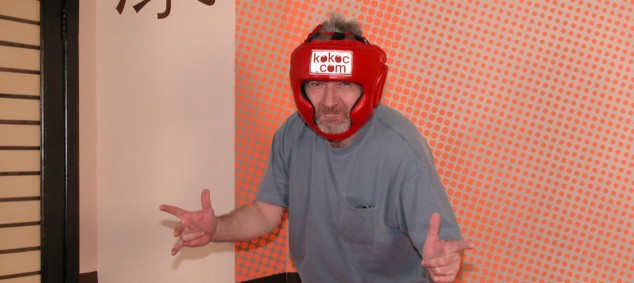Andrei Voronkov, the owner of Kokos: We have thousands of customers, but where is the money?
- We earned a name, but not money.
- We have become large, but this is not money.
- Thousands of customers, but their money is not quite with us.
- So, where is the money?

It would be possible to write about ethics, humanity, beautiful actions, brilliantly won negotiations, but now I’m talking about business and push off from money - it's easier to count.
')
Kokos is 11 years old and I have been driving with him for 11 years. Removable house in the country, middle-class car - that's all that I can afford, except for restaurant food, a limited amount of belongings and a couple of trips a year somewhere for a week. Accumulations, alas, also not.
A natural question: why the hell do I need all this then? After all, I was doing business, most likely for money? Well, yes, for them. It was strange somehow, as much as 11 years of successful business - and nothing in the bottom line, except for a share in Kokos and a few other smaller structures.
So, about * b number 1. We always grew.
And they grew for the sake of growth, for the sake of ponts, for the sake of large salaries to employees, fueling themselves with the thought that quantity will turn into quality without fail. But each time the number went into an even greater number. Rave…
About * b number 2. We zazhralis and played.
This happened already in 2005-2006. It was then that we received a super-powerful weapon, having invested huge amounts of money into the production of thousands, and later tens of thousands of satellite sites, with which we could withdraw any request in the top 3 from one update. At that time, we practically did not use the work of the optimizers, because my companion and programmers created a working model of automatic promotion. Links decided. I remember the episode when, at the request of “Croatia”, “Tours to Croatia”, “Holidays in Croatia”, there were 18 of our sites in the top-20 and these were rented sattelites. One account manager could manage up to 160 projects at the same time, stupidly sending reports to clients, since there were no complaints.
All this with varying success lasted for six years or a little more, we still invested in production, which naturally leveled the profitability of the business. In fact, even here we have not made a lot of money. And this is in terms of total technological monopoly in the market.
About * b number 3. We decided that everything is possible for us.
After the merger of RBS Corporation, the company's business model has changed. The bet was made on global advertising, and therefore on a crazy number of incoming applications and, as a result, a large influx of new contracts. Here failed to complete.
To process the applications, we had to keep in the state about eighty salespeople, plus a group of analysts plus something else there on the little things. The quality of applications from such advertising was low, most sellers were weak, production began to fail. In just one year, the company slipped to the status of a major player, but not the flagship of the industry, which has been almost 10 years. And we lost a lot, a lot of money, which went into advertising, employees, the subsequent restoration and licking of wounds.
About * b number 4. The absence of chaos.
Having created a certain management system already in 2006, we went from year to year to the authoritarian system, inventing new and new rules for control, control, and covering all of this with doors, fences and limited access. Motivational factors became more complicated every day, the chiefs increased many times, and ass licking was welcomed. It was with this vomit that I encountered, having gone to work a year ago after an almost three-year absence.
Fortunately, we almost immediately agreed with our partners on the recognition of this management model as insane and for the year we demolished it at zero as such. It was precisely in such a company that the ingenious employees of Kokos, who had previously left as dissidents, began to return. Only in the last six months, the Coco has again become chaotic and recognizable, but again we lost money.
Pro * b No. 5. (Possible)
- Demolished control vertical completely.
- Removed several talented managers and unnecessary departments as superfluous.
- Began to invest in customers, sharing risks.
- Refused hundreds of contracts with customers who do not want to grow their business.
- They stopped taking office plankton as a class for work.
- Reduced the flow of new contracts, raising the quality of service to a degree.
And so forth, so forth, so forth.
All this should be something - a breakthrough, about * bom, sleep, loot ... xs, but it is obvious that it will.
Let's wait.
Source: Roem .
Source: https://habr.com/ru/post/296436/
All Articles